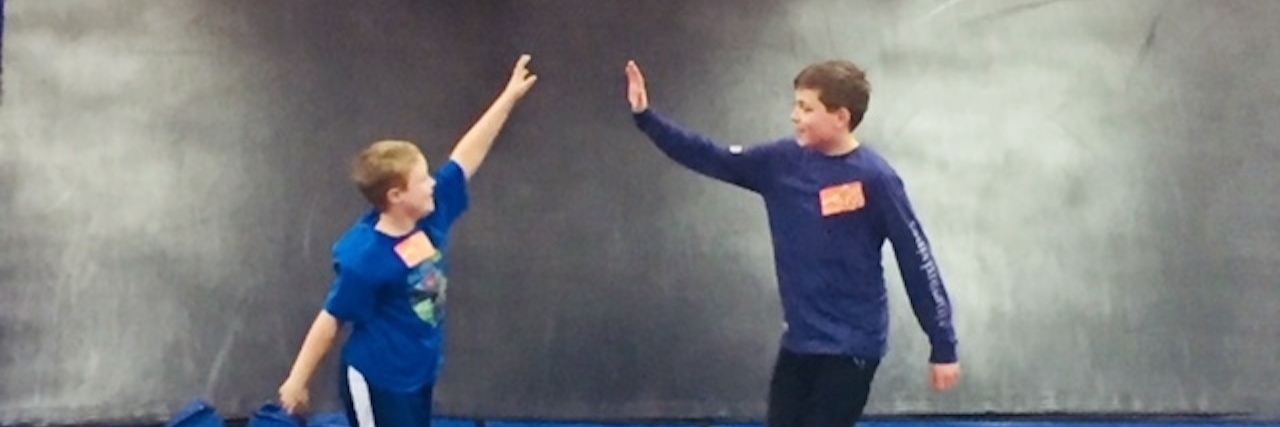My Son With Down Syndrome Wants to Have Friends at His Middle School
October is Down Syndrome Awareness Month, and my feed is full of pictures of my friends’ beautiful children, and posts about what they’re accomplishing. Some of those posts are candid about the harder things in their lives, too. And it’s made me think about how I tend to post the sunnier stuff about my son with Down syndrome. I do that, partly because I love him and am so proud of him, and I want to brag about him, like other parents on Facebook. But it’s also because I worry that if I share the harder things, the tough stuff that bubbles up sometimes, he’ll be judged in a way a neurotypical child might not. And that’s likely because some of the things that are challenging for my son at times aren’t challenging for other 12-year-olds.
He’s a very bright kid, but the differences in working memory and his speech delay mean he needs more repetition to remember certain things, and a lot more time to finish certain tasks. The speech delay, in particular, is very frustrating for him. And frustration in a kid with a speech delay looks different. Where my neurotypical son would deliver an angry, 5-minute soliloquy about whatever is bothering him, my son with Down syndrome gets stuck sometimes, unable to express his thoughts or relay a story about something that happened to him, and then he shuts down. Or throws something in frustration, or shouts, or bursts into tears. And his peers don’t always understand it, and that creates distance.
When he was little, the social part of school was the easy part. The gaps were less apparent, and the kids were more accepting, maybe. I have pictures from many years’ worth of class parties and friends’ parties where my boy is literally in the thick of it, laughing with the other children. Now that he’s in middle school, building and sustaining those relationships takes more effort. He gets a lot of high fives in the hallway, but not many birthday or after school invitations. And that’s hard, because he’s fundamentally a social being (far more than his mother), and he wants to be friends with his classmates.
I’d always heard from parents of older kids with Down syndrome that life gets much quieter in middle school. Now it’s our turn. And some of that is on me, admittedly, because I waver about calling the parents of a classmate he’s talked about, because I’m not sure what their kid has told them about my son, or how receptive they’d be to hanging out. Would they really want to come to our house to play Mario, or Just Dance, or Frisbee freeze tag? I talk myself out of it, when I should be brave, suck it up, and make the call.
So the “awareness” I’m hoping to raise here, I suppose, is that it would be a wonderful thing if parents of neurotypical children could actively encourage their kids to reach out to children with differences, to try to get to know them a little better. The mechanics of that may be a little more complex, but there’s real value in having a diverse group of friends. Those friendships will enhance your kids’ lives, too.

